"The Islamic Republic of Iran wants the security and well-being of Kurdistan and the unity of all Kurdish groups,” Ebrahim Raeesi, the head of the judiciary, told Kurdish special envoy Hoshyar Zeibari in a meeting on February 11.
"What we want as the Islamic Republic is the unity and solidarity of all Kurdish groups; any differences and divisions between Kurdish groups are harmful and pave the way for the presence of enemies in the region," he said. "The security and comfort of Kurdistan is our security and comfort, and we feel for the dear people of the Kurdistan region like our own people. We always think of the well-being of Kurdish groups and wish them prosperity."
But has the Islamic Republic sought security and comfort in Kurdistan for the last 42 years? Has the Islamic Republic taken any steps to unite Kurdish groups? To assess Ebrahim Raeesi’s claim, IranWire presents an overview of the 42-year relationship between the Islamic Republic and Kurdistan.
Ebrahim Raeisi addressed the Iraqi Kurdistan Region and the Islamic Republic's relationship with it. In order to properly understand these relations, one must first gain an accurate understanding of what has happened in Iranian Kurdistan over the last four decades.
Kurdistan: 1979-2021
The 1979 Islamic Revolution created a space for the idea of Kurdish autonomy to re-emerge. However, the indifference of the revolutionary government on the one hand and the Kurds' emphasis on their historical demands on the other increased tensions between Tehran and Kurdistan.
The Kurds’ boycott of the February 1980 referendum put forth by the new government of the Islamic Republic coupled with the rapid expansion of the influence of Kurdish parties in Kurdistan and the Kurdish parts of West Azerbaijan increased tensions, resulting in Ruhollah Khomeini ordering an attack on Paveh on August 19, 1979. Although the war had really begun before, the Iranian government made if official at this point, and stepped up its military operations.
The war lasted three months, brought to an end when Ayatollah Khomeini called a ceasefire. Talks between Iran and Kurdish leaders resumed, but were fruitless, and clashes soon broke out again. At this stage, the government armed forces confronted the Kurdish armed forces in the strongest possible way and forced them to leave Kurdistan. Eventually, all of Kurdistan came under the control of the government and the army, and the Kurdish forces that managed to escape continued their efforts from within Iraqi Kurdistan, but were never able to regain power on Iranian soil.
Therefore, it can be said that the conflict between the Kurdish political groups and the regime of the Islamic Republic started in the first months following the revolution and never ended. Although a massive crackdown by the government has led to a ceasefire that has lasted years, the Islamic Republic has not only not allowed Kurdish activists to operate inside Iran, it also sustained its persecution of Kurds, and this has included assassination campaigns both inside and outside Iran.
The assassinations of Abdol Rahman Ghassemlou, Seddiq Kamangar, and Sadegh Sharafkandi, Kurdish leaders in Europe, as well as other regular foreign assassinations of dissidents in Iraqi Kurdistan that took place between 1991 and 1997, show that the Islamic Republic regime has never reconciled with Kurdistan.
Abdol Rahman Ghassemlou, secretary general of the Kurdistan Democratic Party of Iran, was killed on July 13, 1989 in the Austrian capital Vienna during peaceful negotiations with representatives of the Islamic Republic to resolve issues between the two sides.
Another secretary general of the Democratic Party, Sadegh Sharafkandi, was also targeted and killed in a terrorist plot on September 17, 1992 along with two colleagues and their translator at the Mykonos restaurant in Berlin.
The Islamic Republic also carried out the assassination of Sediq Kamangar, a leader of the communist Komala Party of Iranian Kurdistan, in September 1989 in the country’s Kurdish region.
Although the Islamic Republic has never claimed responsibility for the assassinations, a glance at the list of executions, sit-ins, strikes and protest rallies in Kurdistan over the past 42 years shows that Kurdistan has consistently been turbulent and protest there has been rife. It can be argued that no action has been taken by the Islamic Republic to unite Kurdish parties. This unrest began on March 30,1979, when Mamosta Sheikh Ezedin Hosseini and other well-known leaders of Kurdish parties called for a boycott against the referendum to establish the Islamic Republic, and continues to this day. Almost 100 Kurdish activists have been arrested in the first two months of 2021 alone. It is clear that Kurdistan has never been calm and is in a constant conflict with the Islamic Republic.
Bans and Criminal Cases Against Party Activists
According to the Law on Parties approved in 1981, party activities are only allowed for those who are loyal to the general policy of the Islamic Republic of Iran. This policy has been described as honoring and promoting Islam, “enjoining good and prohibiting vice,” and expanding and upholding the Islamic Revolution and its values. Religious minorities are allowed to be involved in religious and cultural affairs, but only in line with the policies of the Islamic Republic.
Therefore, the Islamic Republic essentially refuses to recognize the activities of Kurdish parties since they are generally critical of the Islamic Republic; some of these parties are directly opposed to the Islamic Republic. Also, the Kurds are often considered a religious minority due to their Sunni leanings, and even if they prove their loyalty to the Islamic Republic's policies, they are still banned from setting up political parties.
In fact, over the last 42 years, Iran’s judiciary has made it clear that cooperation with Kurdish parties is a crime that carries a prison sentence.
In 2008, Amnesty International reported that more than 300 people had been detained on charges or convictions linked to support for Kurdish political groups in Iran. ”According to the Kurdistan Democratic Party of Iran, at least 200 people are serving between six months and 20 years in prison,” the report said.
Deprivation and Poverty
Ebrahim Raeesi claims that the Islamic Republic has always promoted welfare in Kurdistan. And yet, the sufferings and endemic problems in Iranian Kurdistan show that Iran has made security the dominant priority in the region, resulting in Kurdistan being among the poorest and most deprived provinces in the country.
In a profile of Kurdistan, IranWire analyzed development indicators in the province. Using the misery index (unemployment rate multiplied by inflation) as an accurate criterion for measuring livelihoods, in 2018, was among the three most critical provinces in Iran.
The following data help provide a clear picture of Kurdistan in recent years:
- Kurdistan has the seventh highest unemployment rate in Iran, at about 15 percent. According to reports, between 40 and 50 percent of jobs are in unofficial sectors. For this reason, jobs such as kolbari — cross-border labor and transport jobs — are common in this province.
- According to the statistics provided by the Statistics Center of Iran, among the provinces having industrial units with 10 people or more, Kurdistan tallies among the last six provinces in the table.
- Kurdistan's share of GDP in 2015 was equal to 0.98 percent. This province is ranked 26th in the country.
- The average income of urban households in Kurdistan in 2017 was slightly more than two million tomans per month; the province was ranked 30th in the country.
- The people of Kurdistan spend 37.2% of their income on food, and in this respect they are ranked second in the country. In terms of inflation, they are ranked second in the country.
- Out of every 100,000 Kurds in 2017, 227 people were imprisoned for drug crimes, which is a sign of deprivation in the province.
Given the Islamic Republic has treated its citizens in this way for the past 42 years, how can it claim that it seeks the security and comfort of Iraqi Kurdistan?
Kurdish Parties in Iraq
The Islamic Republic, despite its apparent enmity with Iranian Kurdish parties, has ostensibly sought to establish friendly relations with Iraqi Kurdish parties. The reason for this friendship concerns two main issues:
1- Existence of a common enemy (once Saddam Hussein and recently, ISIS). This was confirmed by Nazim Dabbagh, the representative of the Iraqi Kurdistan region, in an interview with Tasnim News Agency.
2- Prevention of greater Israeli influence in Iraqi Kurdistan and access to Syria and Lebanon through the Kurdish region. Because of this, the Islamic Republic has always given special support to Jalal Talabani and Massoud Barzani, two Iraqi Kurdish leaders. Barzani was responsible for appointing special envoy Hoshyar Zeibari, who Ebrahim Raeesi met with in February 2021. However, following the death of Saddam and Barzani's efforts for the independence of the Kurdistan region, differences between the two sides soon surfaced.
In fact, this relationship has not been very friendly for a long time. Mohsen Rezaei, secretary of the Expediency Council, accused the Kurdistan region of being involved in the bloody protests of January 2018, saying that the protests in Iran were an operation had been planned in Erbil in Kurdish Iraq. The meeting, he said, was attended by "a CIA official, the head of Saddam's son's office, Saddam's brother, a representative from Saudi Arabia and a representative of the Mojahedin-e Khalq Organization,” also known as The People's Mojahedin Organization (MEK), an accusation that the prime minister of the Iraqi Kurdistan Region, Nichravan Barzani, dismissed as ridiculous.
Assassination of Opposition Figures in the Kurdistan Region
Studies show that the Islamic Republic has not only not guaranteed the security of Iraqi Kurdistan, but has used every opportunity to assassinate its opponents in the region, regardless of international relations.
IranWire has previously investigated the assassinations carried out by the Islamic Republic in Iraqi Kurdistan. The largest number of attempts to eliminate opponents occurred in the Iraqi Kurdistan region, with 295 people killed and 121 seriously injured or mutilated. Regular assassinations began in the early 1990s and peaked in the period between 1993 and 1997.
Jafar Aminzadeh, a former member of the Komala Central Committee, told IranWire: "After hearing the confessions of the perpetrators of the assassination of Osman Farman and Osman Kiani, the leaders of the Komala party, we obtained more details showing how the deputy intelligence chief of the Hamza base, which is based in Urmia, identifies opponents, and what methods they use to gather information and organize forces.
"Through these confessions, we learned that the deputy intelligence chief at Hamzeh camp had organized a group called the Rapperin (Revolutionary Group) led by a man named Kamal Mawti, to assassinate the opponents after being identified," he said.
In recent years, the Revolutionary Guards Corps has launched several missile attacks on areas in Iraqi Kurdistan in an effort to massacre Kurds opposed to the Islamic Republic. In fact, Guards commanders have not hesitated to officially announce these killings have taken place.
It is clear is that Iran has used Iraqi Kurdistan as a gateway to Syria and Lebanon for the past 42 years and has paid particular focus to its interests and policies in the region.
Therefore, it can be argued that Iran's position toward Iranian Kurds has not been the same as its stance toward non-Iranian Kurds.
Commenting on Iran's relationship with the Kurds, Hagi Uygur, deputy director of the Ankara-based Center for Iranian Studies, writes: "The central government of Iran, despite fighting the Kurdish separatist movements in the last century and facing serious threats from their separatists, does not hesitate to use this card against neighboring countries, especially during periods when it enjoyed power."
Conclusion
On February 11, at a meeting with Hoshyar Zeibari, the special envoy appointed by former head of Iraqi Kurdistan Massoud Barzan, Iran's judiciary head Ebrahim Raeesi said: "The Islamic Republic of Iran wants the security and well-being of Kurdistan and the unity of all Kurdish groups"
After examining in detail the question of whether the Islamic Republic has pursued the security and well-being of Kurdistan for the last 42 years and taken steps to unite Kurdish groups, IranWire has produced the following findings:
- The Islamic Republic's relationship with Iranian Kurdish activists has been consistently violent over the past 42 years. It is a relationship that began with armed conflict and has continued with assassinations, arrests, and imprisonment.
- The Islamic Republic has never recognized Kurdish parties. Not only does it not allow Kurdish party representatives to run for office according to the law, but it has made support for Kurdish parties a criminal act; hundreds of people have been sentenced to prison on this charge.
- The policy of the Islamic Republic during the last 42 years has not involved economic support and development of Kurdistan; for this reason, Kurdistan province is among the most deprived provinces in Iran.
- The relationship between Iran and the Kurdish parties in the Iraqi Kurdistan region should be evaluated in two stages, before and after the fall of Saddam Hussein. Saddam Hussein, as a common enemy of the Iraqi Kurdish parties and the Islamic Republic, paved the way for their unification, but with the overthrow of his government and Massoud Barzani's attempt to declare the independence of Iraqi Kurdistan, relations between Iran and Iraqi Kurdistan became unfriendly.
- The Islamic Republic has repeatedly assassinated its opponents in the territory of Iraqi Kurdistan over the last years and at times has even carried out missile attacks on Kurdistan.
- The Islamic Republic officially opposed the independence of Iraqi Kurdistan and was accused of supporting militant groups during the unrest in Kirkuk and Hashd Al-Shaabi's attack on the Kurds.
Therefore, it can be said that there is no evidence for Ebrahim Raeesi's claim that "the Islamic Republic of Iran wants the security and comfort of Kurdistan and the unity and cohesion of all Kurdish groups" IranWire has demonstrated that this is "not true".
It is not true: to lie about a specific new event or something that has not been proven to be true before, using the facts and available evidence.
visit the accountability section
In this section of Iran Wire, you can contact the officials and launch your campaign for various problems




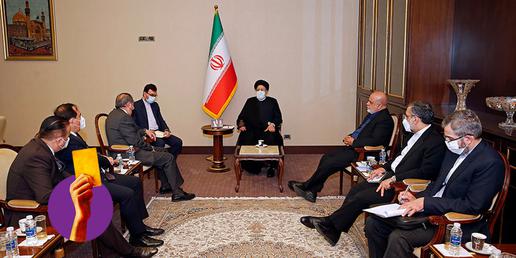
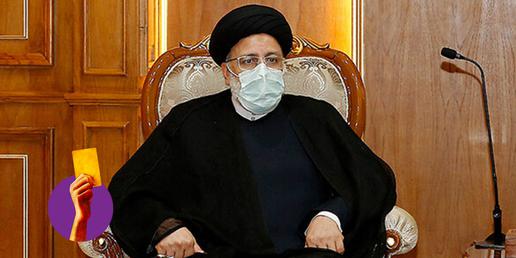
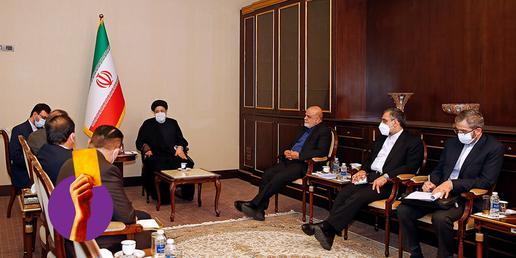


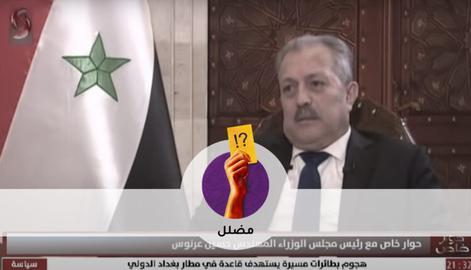

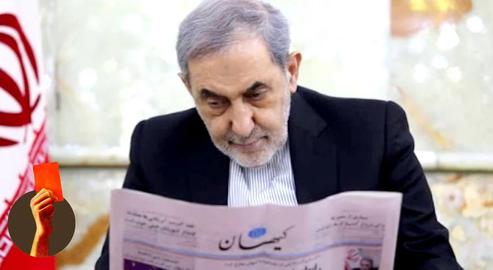

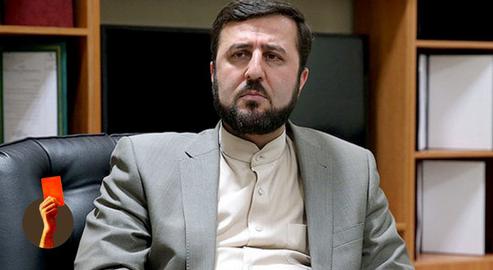
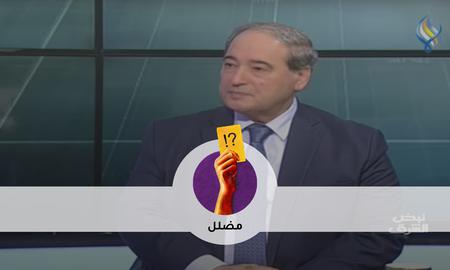
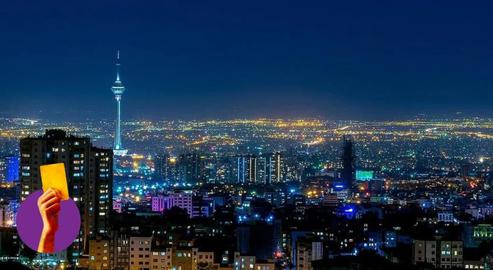
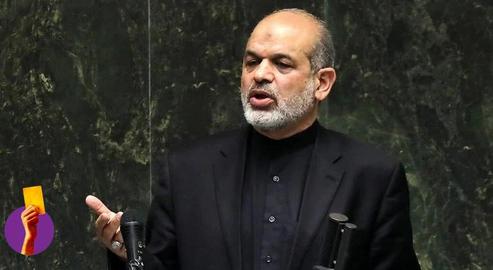
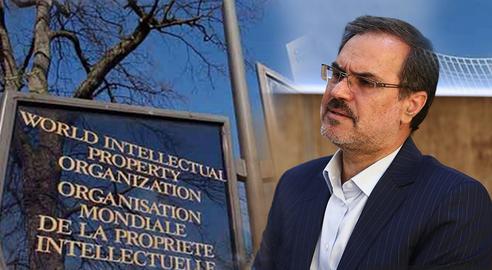

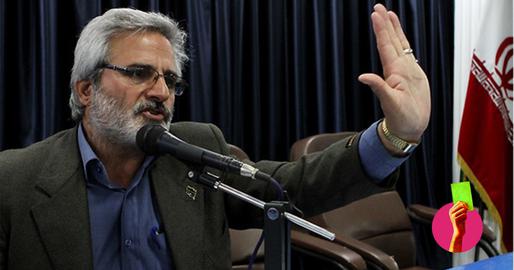
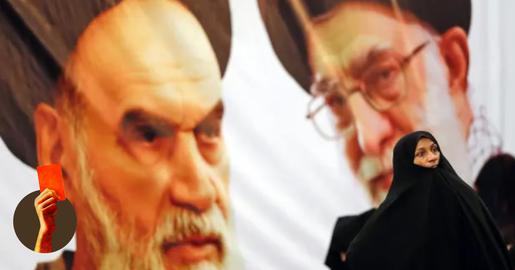
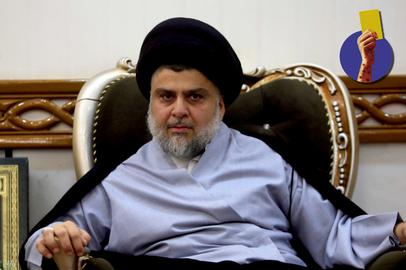
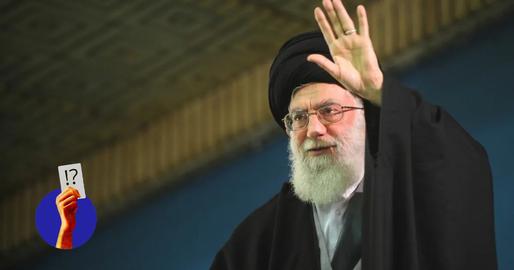
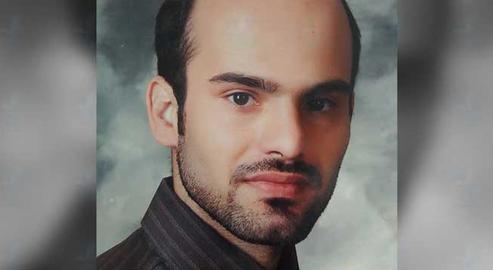
comments